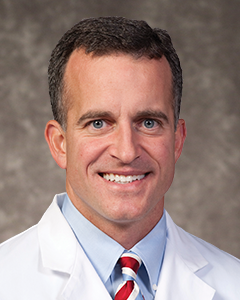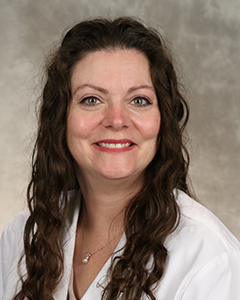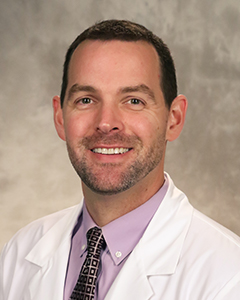On March 1, the North Kansas City Hospital Bariatric Center became the Total Weight Loss Center. As the name implies, the Total Weight Loss Center offers an expanded range of services. In addition to expert surgical weight loss options with Keenan Berghoff, MD, FACS, FASMBS, and Joshua Mourot, MD, FACS, FASMBS, Breann Kelley, MD, a medical weight loss physician, has joined the center. Dietitians, nurses and a psychiatrist also continue to be part of the care team. The new clinic will be on the 6th floor Pavilion, once construction is complete around May 1.
“Because obesity is a disease for which there is not one treatment, we sought to expand our services,” said Dr. Berghoff, medical director of Bariatric Surgery at NKCH. “Breann is knowledgeable and passionate, and our patients will benefit from her medical, nonsurgical weight management expertise.”
The center is the only one in the Northland accredited as a Comprehensive Center by the Metabolic and Bariatric Surgery Accreditation and Quality Improvement Program, a joint program of the American College of Surgeons and the American Society of Metabolic and Bariatric Surgery.
“We are the same accredited center, and now we are offering more complete tailored services to address the weight loss needs of all types of patients,” Dr. Mourot added. “If a patient has a weight issue, we have a solution in our clinic that exists for them.”
Weight Loss Management
Patients who have a BMI ≥30 are at risk of premature death due to significant obesity-related comorbid conditions, including cardiovascular disease, degenerative joint disease, hypertension, sleep apnea, stroke and Type 2 diabetes.
“Equally, studies show people who are motivated to lose weight for health versus cosmetic reasons tend to lose more weight,” said Dr. Kelley, a diplomate of the American Board of Obesity Medicine. “I try to meet my patients where they are, and then we work together on their weight loss by developing goals that allow them to follow a healthier lifestyle. Luckily, weight loss does not require perfection. It just requires progress.”
Whether that progress means weight management before and after surgery or weight management alone, Dr. Kelley’s comprehensive nonsurgical care includes:
- Behavior modification counseling
- Exercise and physical activity guidance
- Dietary modifications
- Medications and supplements
“Obesity is an epidemic and not a function of laziness, and surgery is not always the best option," Dr. Kelley said. "Each piece – from weight management, to mental health, to nutrition, to surgery – is one tool in our toolbox. We seek to respect our patients’ desires, whatever their goals may be."
Surgery
The American Diabetes Association’s 2018 Standards of Medical Care notes bariatric surgery should be performed in high-volume centers with multidisciplinary teams that understand and are experienced in the management of diabetes and gastrointestinal surgery. The standards also note metabolic surgery should be:
- Recommended as an option to treat Type 2 diabetes in appropriate surgical candidates with a BMI ≥40 kg/m2 regardless of the level of glycemic control or complexity of glucose-lowering regimens, and in adults with a BMI 35.0–39.9 kg/m2 when hyperglycemia is inadequately controlled despite lifestyle and optimal medical therapy
- Considered as an option for adults with Type 2 diabetes and a BMI 30.0–34.9 kg/m2, if hyperglycemia is inadequately controlled despite optimal medical control by either oral or injectable medications
NKCH offers these safe, proven bariatric surgery options:
- Gastric bypass involves bypassing part of the digestive system and rerouting part of the small intestine to connect to a new, smaller stomach pouch. This procedure helps patients lose weight by limiting the amount of food their stomach can hold and reducing how much food is digested.
- Gastric sleeve entails the removal of a large portion of the stomach. The resulting smaller “sleeve”-shaped stomach restricts the amount of food the stomach can hold.
- Modified duodenal switch is a minimally invasive procedure that combines a sleeve and a bypass. The surgeon reduces the size of the stomach and bypasses a portion of the small intestines.
With all three procedures, patients return home the next day.
Support
The bariatric surgery informational seminars have been canceled due to the pandemic, but prospective patients can schedule an in-person surgery consultation to determine if bariatric surgery is right for them.
Once surgery is determined, patients consult with the physicians and staff during three visits prior to surgery. Some insurance companies require more frequent visits. In addition to having support from nurses,a nurse practitioner and dietitians, patients also meet with a psychiatrist. After surgery, patients are followed postoperatively at 1 and 6 weeks; at 3, 6, 9 and 12 months, and then yearly.
“This is a lifelong journey for patients, but we don’t seek to take over their primary care. We partner with their PCP so together we can provide comprehensive care, and our patients can accomplish their goals,” Dr. Mourot said.
Dr. Berghoff earned his medical degree from Indiana University. He was a general surgery resident at the University of Missouri-Kansas City and a fellow in advanced laparoscopy at the Texas Endosurgery Institute.
Make a Referral
To make a referral to the Total Weight Loss Center, call 816.691.5048.

Keenan Berghoff, MD, FACS, FASMBS
Dr. Berghoff earned his medical degree from Indiana University. He was a general surgery resident at the University of Missouri-Kansas City and a fellow in advanced laparoscopy at the Texas Endosurgery Institute.

Breann Kelley, MD
Dr. Kelley earned her medical degree from the University of Missouri-Kansas City, where she completed her residency in internal medicine.

Joshua Mourot, MD, FACS, FASMBS
Dr. Mourot earned his medical degree from the University of Texas Medical Branch and completed his residency in general surgery and a fellowship in advanced minimally invasive surgery at the University of Washington.